
Preparatory School
Kura Whakataka
At St Andrew’s College Preparatory School, students in Years 1–8 thrive in an engaging, creative, and innovative environment. Supported by excellent teachers, they become part of a vibrant co-educational community. Beyond knowledge, we prioritise developing key learning skills, strategies and understanding. Our student-centred approach fosters independent learners and responsible individuals, equipping them with the values, skills, and confidence needed for a lifetime of learning and a smooth transition to secondary school.

"At the Preparatory School, we nurture independent, emotionally intelligent learners who thrive through diversity, curiosity, and creativity. Learning alongside others with different strengths and perspectives, and being encouraged to think for themselves, strengthens their personal growth and character. Through meaningful challenge, our children build confidence and grow the skills they need to flourish."
Leigh FowlerPrincipal of Preparatory School
Our Leadership Team

Leigh Fowler
Principal of Preparatory School

Alex Kelley
Deputy Principal

Vicki Pettit
Deputy Principal, Head of Teaching and Learning

Heather Orman
Assistant Principal, Head of Junior Department (Years 1–3)

Megan Feller
Head of Middle Syndicate (Years 4–6)

Kelly McBride
Year 7 Team Leader, Head of Learning Enrichment

Morgan Sheppard
Year 8 Team Leader

Our vision
We want our students to be active participants in a dynamic community of learners and inspired to become valued citizens and enthusiastic learners for life. We nurture the development of talent and creative ability through a balanced exposure to academic, cultural, service, social, spiritual and sporting opportunities.

Student-centred learning
At St Andrew’s College Preparatory School, student-centred learning lies at the core of our approach. Our inspired and passionate teachers engage happy and motivated learners. Students actively understand and articulate their learning journey, seeking feedback and cultivating a mindset centred on critical thinking and learning. The quality of our teaching staff significantly impacts the learning experience at St Andrew’s. Our dedicated educators are committed to nurturing each child's potential and their own professional growth, ensuring your child learns from the very best.
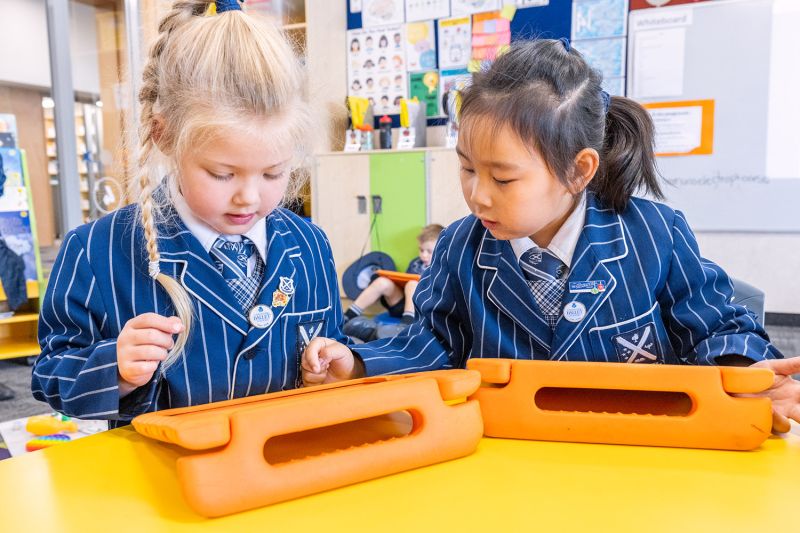
The modern learning environment
In the Preparatory School, we prioritise one teacher per class to foster a vital connection between teacher and student. Unlike the modern learning environments prevalent in many New Zealand schools (where 60 or 90 children share two or three teachers), our approach ensures optimal results. A strong child-teacher connection enhances learning potential and yields the best possible outcomes. Independent research and our own longitudinal evidence surrounding that connection is very clear.
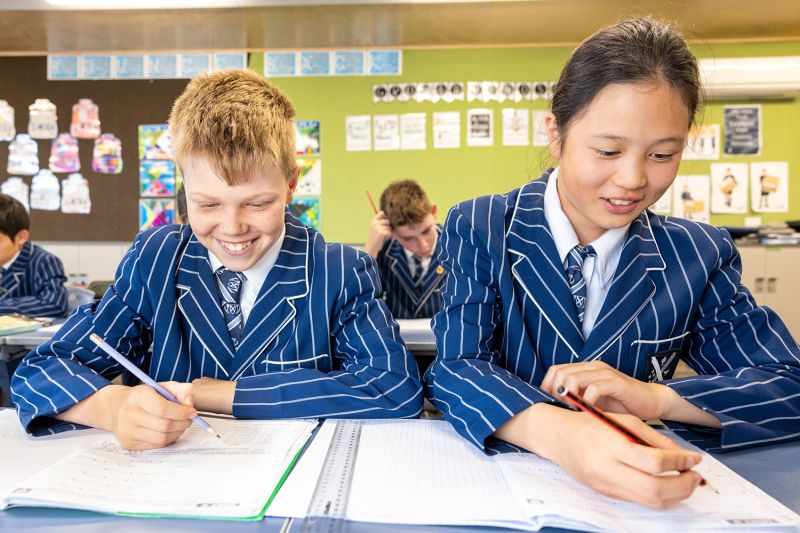
Learning at StAC
The Preparatory School’s student-centred learning environment caters for all learning styles and abilities and offers a level of diversity that nurtures and expands all children’s development. The children’s learning is personalised through differentiation; the focus becomes each child’s genuine next steps. This allows each child to work at his or her appropriate level irrespective of year level. The teacher uses a ‘guide by the side’ approach to stimulate deeper thinking and understanding through quality questioning.

Student leadership
We provide many opportunities for our students to develop and demonstrate leadership qualities in the Preparatory School. Our comprehensive co-curricular programme serves as a prime context for students to refine these skills. Whether leading sports teams or cultural groups, students learn to motivate, organise, communicate, and demonstrate resilience. Leadership roles include prefects, sacristans, librarians, sports captains, house captains, road patrol leaders, and science monitors, among other in-class responsibilities.
Our curriculum
At St Andrew’s College Preparatory School, we prioritise enhancing learning strategies and skills. Our students actively forge meaningful connections and apply knowledge across diverse situations. Guided by the New Zealand Curriculum, our approach recognises the unique context of St Andrew’s. We envision our young learners as confident, creative, and connected lifelong learners. Our curriculum is anchored in clear principles, values, and five key competencies essential for sustained learning and active participation in society.
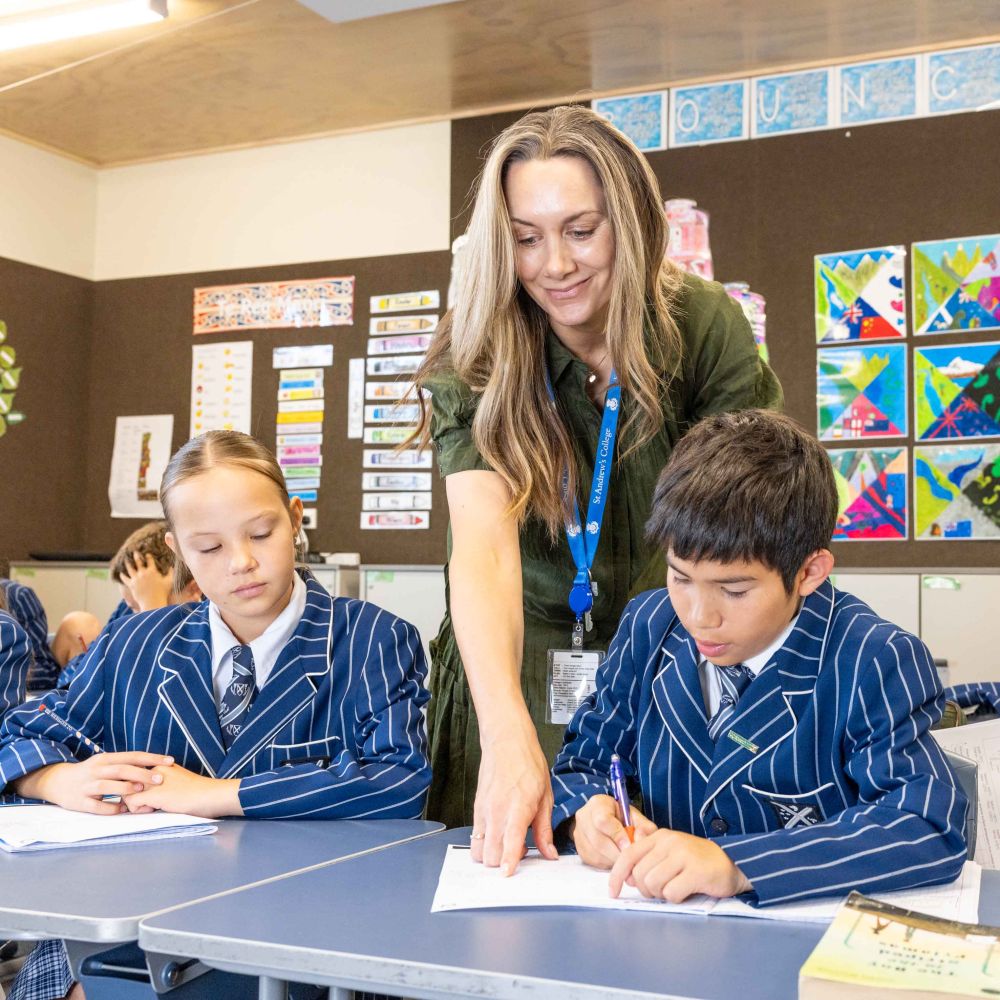
Assessment and reporting
Assessment plays a significant part in our education system and should strive to involve all children in knowing how successful they have been in their learning. This is an integral part of developing lifelong learning skills. Teaching and learning in the Preparatory School has many strengths and a considerable part of this is the ability to reflect modern learning pedagogy in teaching as well as through our approach to assessment. As this shift in education continues so has our view of assessment.
Visible Learning assessment practices are a focus in the Preparatory School, where assessed information is used by teachers to adjust their teaching strategies, and by students to adjust their learning strategies. Assessment, teaching, and learning are inextricably linked, as each informs the other. Students feel involved in the process, are able to describe where they are at with their learning and what their next steps are. Quality and timely feedback from teacher to student, student to teacher, and student to student are an important part of this.
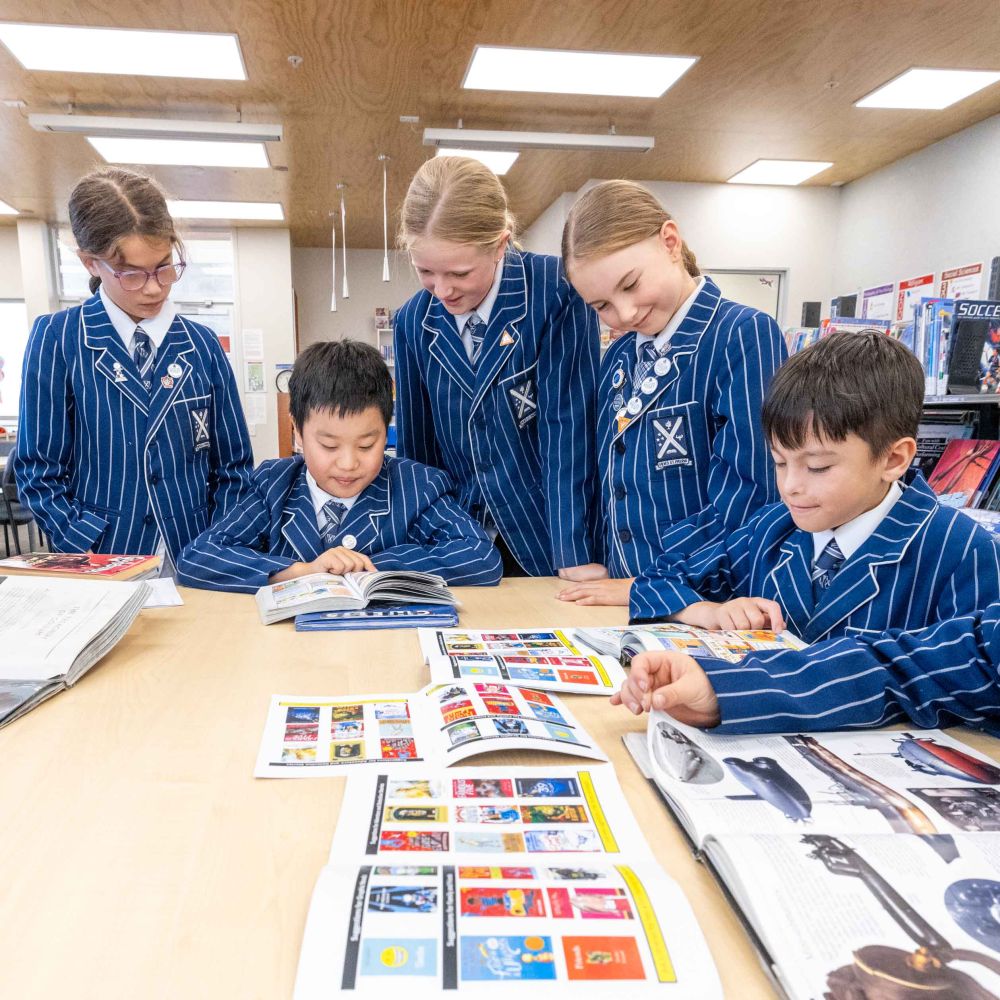
e-Assessment and online testing
We actively integrate innovative assessment methods, leveraging online tools and apps. e-asTTle remains our primary assessment tool for evaluating Year 4–8 students’ reading and writing abilities. Beyond whole-school cohort testing, individual teachers employ shorter e-asTTle tests with small groups to inform targeted learning steps. This tool provides valuable insights to teachers, students, and parents regarding achievement levels aligned with the Curriculum outcomes for Levels 2 to 6. Notably, e-asTTle fosters student self-awareness of progress and facilitates meaningful parent discussions. Additionally, we utilise the e-asTTle writing rubric for self-assessment during classwork.
In Mathematics, teachers use PAT Maths online to assess students learning at both the beginning and end of year and we are also trialing the use of the PAT Adaptive Mathematics test with groups of students. Adaptive testing accurately assesses a student during the test by continuously adapting the assessment to give them questions which best fit their overall level of achievement. The student is given an initial question and if they get it right, they’re given a harder one, or if they get it wrong, they’re given an easier one. Adaptive technology means everyone gets the test, which is right for them, from students at the lower levels to those who need additional challenge.
Curriculum level testing in Mathematics is used across Years 6–8. These tests were developed through the collaboration of Mathematics staff in both the Preparatory and Secondary Schools. The tests provide a tool with which teachers can moderate across classes and year levels and give accurate formative feedback to teachers around next steps for learning. The curriculum level tests, along with rich tasks and other assessment tools, provide staff with an in-depth picture of student learning.

Student portfolios
Student portfolios play a pivotal role in our children’s learning and accomplishments. Students can document their work, set goals, celebrate achievements, and share their learning with a broader audience. In the Junior and Middle Syndicates, students utilise the online platform Seesaw for their portfolios. Seesaw enables teachers and students to upload current work samples, while parents and family members can view and provide comments. For Senior Syndicate students, the portfolio is electronically shared via OneNote, ensuring a seamless transition to Secondary School, where OneNote is also employed as a teaching and learning tool.
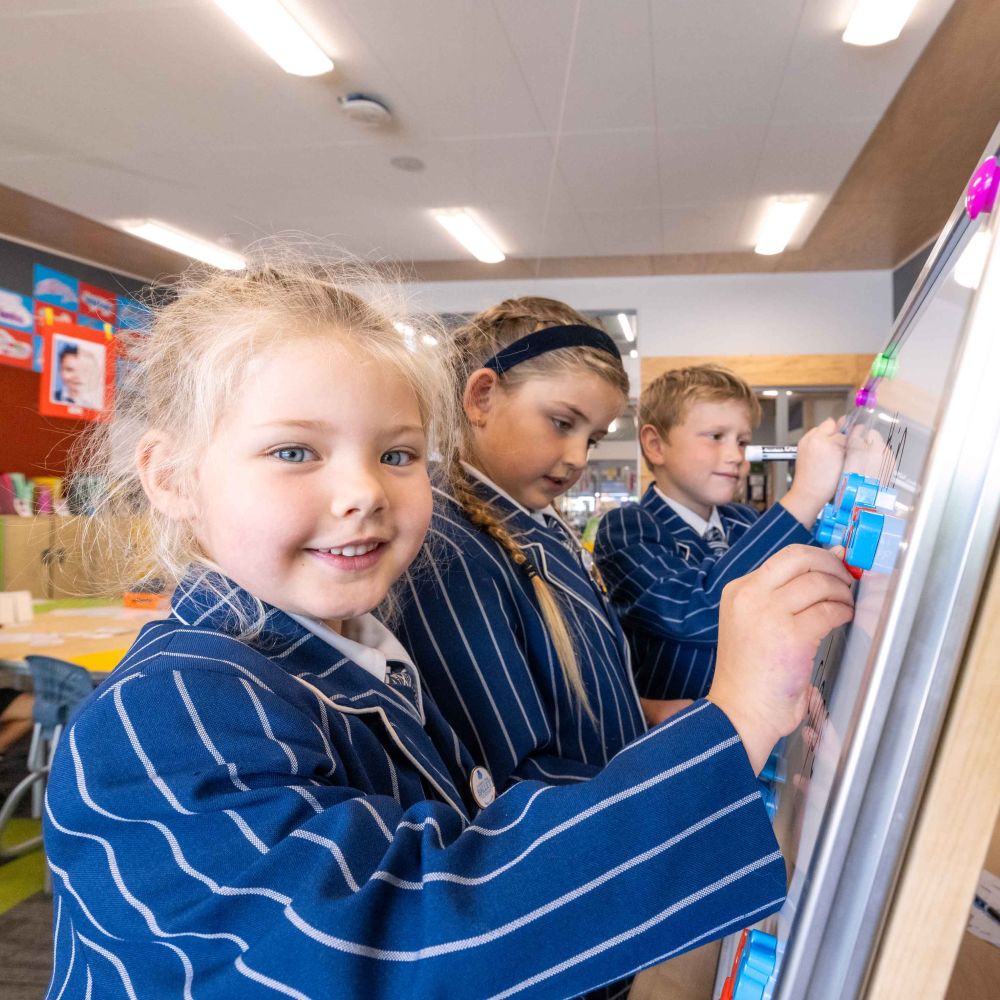
Well-being and pastoral care
Looking after the well-being of our students is a vital part of the school day. Our deliberate decision to continue to offer a one teacher to one class of children is counter to the current trend in New Zealand state schools but allows our classroom teachers to develop an in-depth understanding and empathy for the small group of students in their care.
For students who require more specialised support, our Pastoral Care team provides an important service. This team meets once a week to discuss and allocate students to a variety of services, including in-school counselling and guidance, and referral to outside agencies. Students' needs are regularly updated and tracked through the College’s student management system, ensuring the right information is being seen in a timely manner to support students.

Gifted and talented
Our well-established Gifted and Talented Education (GATE) programme is set up to be responsive to the individual needs, strengths and interests of gifted and talented students. High achievers in sport and culture are also well supported at St Andrew’s through a range of programmes and initiatives. In the Preparatory School we have a large group of high achieving students on a Priority Learners’ Register, which keeps track of their activities and monitors their progress.
One of our key strategies is the Differentiated Classroom programme, run by each class teacher to cater for the wide range of abilities in classrooms. This integrated approach enhances problem-solving, inquiry and higher order thinking skills, and ensures the learning is engaging and suited to the individual ability of each student. Differentiation greatly enhances the educational experiences of gifted and talented students.

Learning support
Where required, student learning is supported by the school’s learning support team. The programmes offered are considered crucial for building self-esteem and addressing delayed learning. We have a full-time reading specialist and several teacher aides, and offer support in subjects such as reading, mathematics, spelling and writing. This support is based on individual student needs and is priority assessed. Counselling facilities are also available to parents with student concerns.

Learning with ICT
Our students actively engage with digital tools both inside and outside the classroom, fostering responsible digital citizenship. Our distinction as one of New Zealand’s most innovative Microsoft 365 schools reflects our commitment to cloud-based collaboration. Through our 1:1 Computing programme, Year 7 and above students bring their own devices, connecting seamlessly to online resources via the College’s wireless network. Real-time information sharing between teachers and students enhances the learning journey. Year 6 students are increasingly opting to bring personal devices, although it remains optional. Class devices appropriate for Years 1-6 are available, ensuring technology enriches learning authentically.

Sports
Our students enjoy a vibrant sports programme. Guided by our Head of Preparatory Sport, we ensure it aligns with current trends, caters to student needs, and serves as a bridge to Secondary School. Sports are mandatory for Years 4–8, including participation in annual athletics, swimming, cross-country, and duathlon events. Our diverse offerings span cricket, touch, football, rugby, netball, basketball, hockey, tennis, and water polo. Students can engage in inter-school sports competitions at local, regional, and national levels. A strong sports exchange system, and an annual sports tour are other highlights.
The competitiveness of the Preparatory School’s sports programme is cultivated alongside a strong team culture that celebrates good play. Teachers are responsible for guiding and developing key competencies, while encouraging students to support less able players, be inclusive of others, cope with mistakes, and share in the success of others. Preparatory School sport also provides an excellent pathway to sport in the Secondary School.

Co-curricular, cultural activities and clubs
Our students immerse themselves in a rich tapestry of co-curricular and cultural pursuits. From Speech and Drama to Dance, Highland dance to Ballet and kapa haka, chess and art clubs, our offerings are diverse. Professional singing instruction and access to a wide array of instruments empower students to join jazz and concert bands, choirs, chamber groups, barbershop ensembles, rock bands, and our globally acclaimed Pipe Band. The annual Preparatory School production, involving all Year-8 students in both performance and behind-the-scenes roles, stands as a cultural highlight.
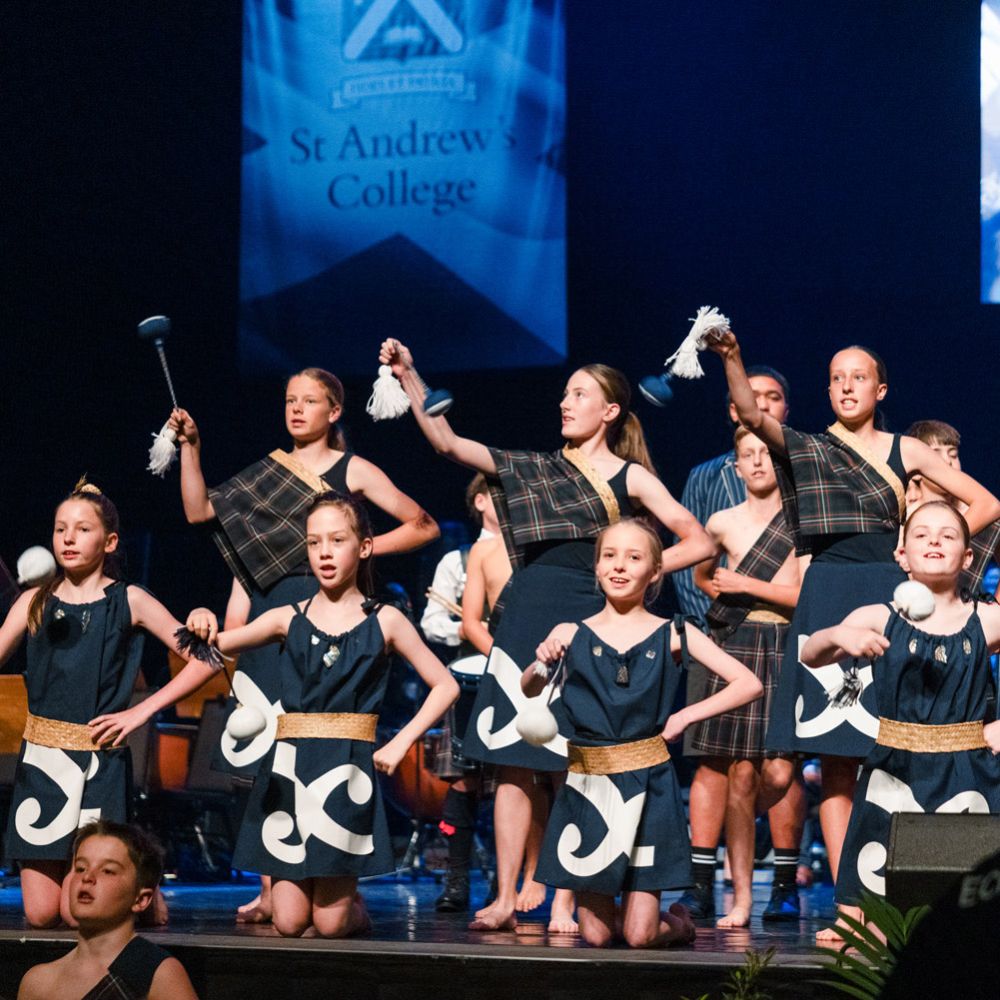
Beyond the classroom
For over 25 years, our Outdoor Education programmes have provided high-quality outdoor experiences. In Year 7, students are introduced to a variety of skills and concepts that will be further developed during future camps. Safety and enjoyment take centre stage, allowing students to explore a diverse range of outdoor activities. They face both individual and team challenges, fostering an understanding of teamwork and decision-making. As they navigate the Year 8 programme, students hone their decision-making and risk management abilities through a mix of individual and team-based activities.

You may be interested in ...

Uniform
St Andrew’s College uniform is available exclusively from the College Shop, Thistles, and from our Second-hand Uniform Shop run by the PTA, both located on campus.

ERO Report
The latest ERO Report for the St Andrew's College was published in 2025.

Fees
Fees are reviewed each year, with careful consideration given to the factors and costs required to deliver the high-quality education the College delivers.
Contact Information
Enquiries
For further information please contact Assistant to the Principal of Preparatory School, Preparatory School Enrolments, Charlotte Martins.








